14 Essential Senior Dog Nutrition Tips
This article shows you 14 Essential Senior Dog Nutrition Tips.
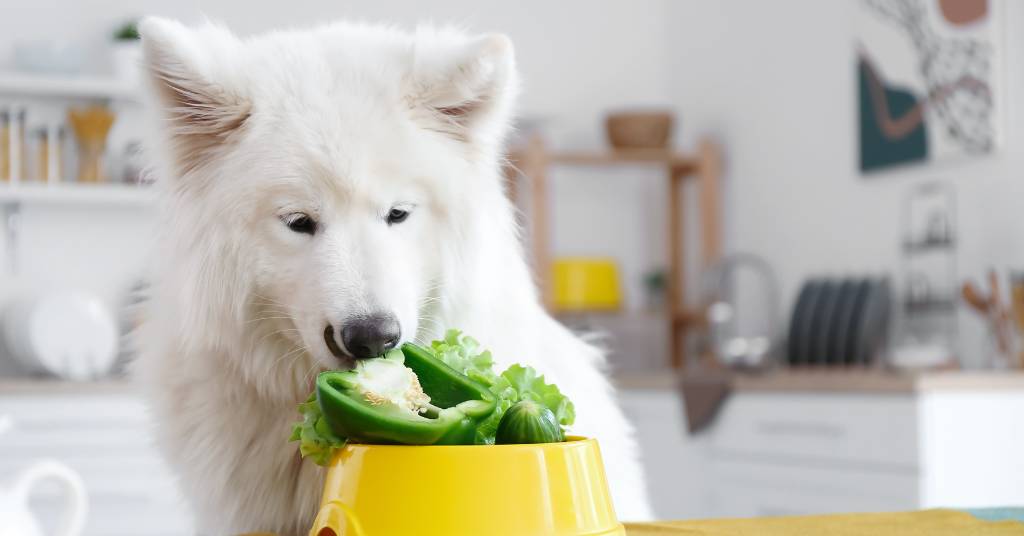
- 1 Focus on high-quality protein
- 2 Reduce calories, not nutrients
- 3 Add omega-3 fatty acids for joint and coat health
- 4 Include antioxidants for brain and immune health
- 5 Choose foods with joint-supporting nutrients
- 6 Ensure proper hydration
- 7 Add fiber for digestive health
- 8 Avoid excessive fat
- 9 Feed smaller, more frequent meals
- 10 Watch their weight closely
- 11 Add probiotics to support digestion
- 12 Avoid unnecessary fillers
- 13 Choose softer textures if needed
- 14 Talk to your vet regularly
As dogs age, their nutritional needs change, and the right diet can make all the difference in keeping them happy and healthy.
In this guide, we’ll share 14 essential senior dog nutrition tips to help you support your aging dog’s health, energy, and quality of life.
The main reason I’m writing this article is because these tips are honestly easy to follow. You just need to learn how to choose the best dog food for them and then share some food that you already have at home!
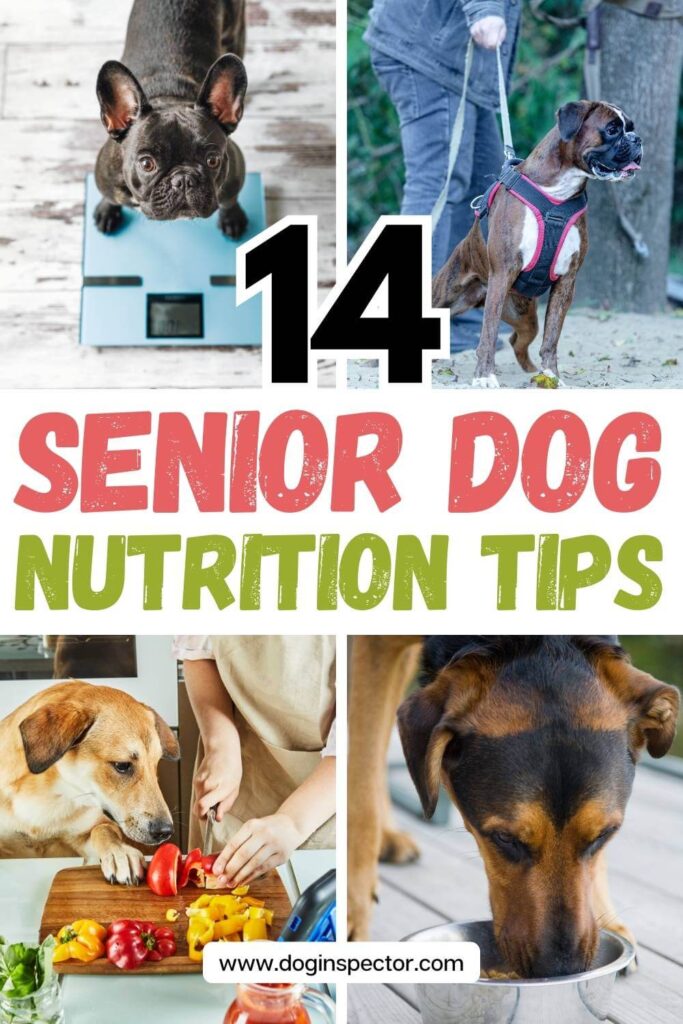
1 Focus on high-quality protein
Senior dogs need a lot of high-quality protein. That’s why the first step is to find a good senior dog food that has named protein on the label, like chicken, beef, veal, salmon, or similar. Protein is important for maintaining muscles and giving your dog energy for metabolic processes and their daily activities.
What you can also do to help them is include more protein in their homecooked meals, so you can combine these with their kibble. One meal per day can be cooked beef without added seasonings, lean chicken and turkey (cooked, of course), and some hard-boiled eggs and salmon.
Don’t give your dog poor quality food that has “meat meal” or “meat products” on the label, as that usually includes poor quality meat products.
2 Reduce calories, not nutrients
Older dogs slow down a bit, meaning they need fewer calories to avoid gaining weight. However, reducing calories doesn’t mean skimping on nutrients. Senior dogs still need foods with lots of essential vitamins and minerals to support their overall health.
So, now you need to follow a simple rule – less is more, but the food you give them has to be extra nutritious!
Look for nutrient-dense dog foods specifically formulated for seniors. These foods are often lower in calories but still have the right balance of protein, fats, and carbohydrates to meet their needs.
Then, you need to include cooked lean meat and fresh veggies like carrots, green beans, and spinach and keep the meals balanced.
3 Add omega-3 fatty acids for joint and coat health
Omega-3 fatty acids are a must for senior dogs. These healthy fats can reduce inflammation, ease arthritis pain, and help your dog maintain a shiny, healthy coat.
To give your dog more omega-3s, try adding fish oil supplements to their meals or cooking foods like salmon or mackerel. You can cut a small piece of fish and prepare it in your pan, but just don’t add any salt or seasonings.
Flaxseed oil is another great option, especially if your dog enjoys home-cooked meals.
If you’re using a supplement, make sure it’s specifically made for dogs and check with your vet for the right dosage. Regular omega-3s in your senior dog’s diet can make a big difference in their mobility and overall comfort.
4 Include antioxidants for brain and immune health
Antioxidants are super important for senior dogs. Their main role is to reduce oxidative stress (that’s when the cells get damaged). At the same time, they support brain health and keep the immune system strong.
That’s why, out of all senior dog nutrition tips, this one is the easiest to follow. Just add fruits and veggies like blueberries, spinach, and carrots to your dog’s regular meals.
Feeding your dog foods packed with vitamins A, C, and E can help them stay sharp and healthy as they age. A little boost from antioxidants can make a big difference in how they feel every day.
5 Choose foods with joint-supporting nutrients
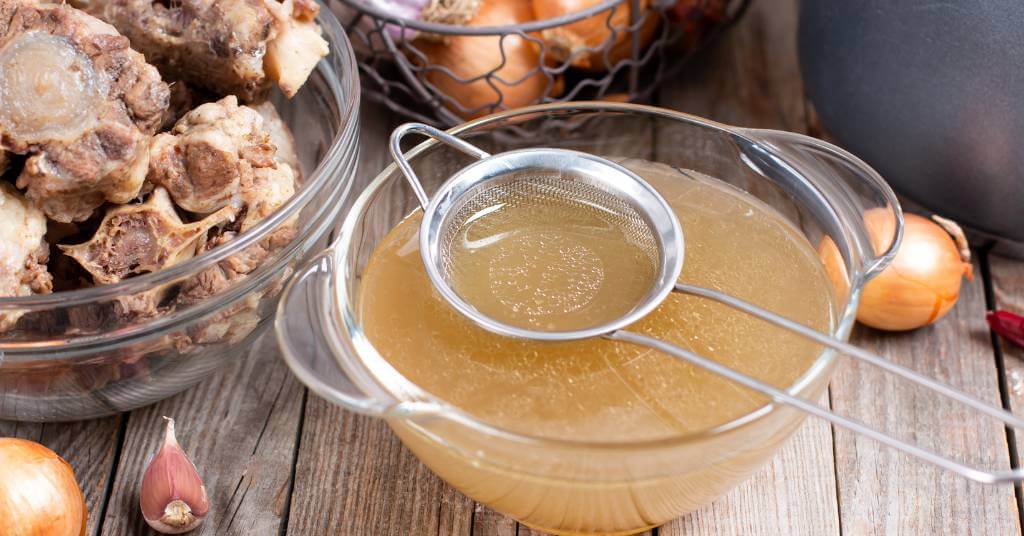
The vast majority of older dogs suffer from joint issues and pain. That’s why it’s important to buy senior dog food that has added glucosamine and chondroitin (check the labels!).
These nutrients will help with pain but also strengthen your dog’s joints by maintaining the cartilage and making it easier for them to stay active.
They are not magical, so they can’t suddenly make them young again, but they can significantly reduce the strain and make it easier for your dog to move around comfortably.
6 Ensure proper hydration
Drinking enough water is just as important for senior dogs as it is for us! Older dogs are more prone to dehydration, especially if they mostly eat kibble, which is low in moisture.
You need to make sure that they always have fresh water available at their usual place in your home!
Another easy fix is to share hydrating fruits and veggies like watermelon and cucumber.
This small change can go a long way in improving their overall health. Remember, keeping your senior dog hydrated is an essential part of their daily care.
7 Add fiber for digestive health
As dogs age, their digestion can slow down, and constipation might become an issue. Adding fiber to their meals can keep things moving smoothly and support a healthy gut.
Some natural fiber sources you can try include pumpkin, sweet potatoes, or green beans. These are easy to mix into their food and can be a great way to keep their digestion on track. Including fiber in their diet is one of the easiest senior dog nutrition tips to follow.
8 Avoid excessive fat
Too much fat in your senior dog’s diet can lead to problems like obesity and even pancreatitis, which are serious health concerns. Stick to foods with moderate fat levels to keep them healthy.
It’s also best to avoid giving table scraps like bacon, fried foods, or anything greasy.
Choosing healthier options and keeping fats in check will go a long way in managing your dog’s weight and overall health.
9 Feed smaller, more frequent meals
Senior dogs often do better with smaller meals spaced throughout the day. This makes digestion easier and helps maintain their energy levels.
Instead of two big meals, try splitting their food into smaller portions. However, take into account their feeding habits, as you don’t want to train them to eat more now when they need to eat less calories!
10 Watch their weight closely
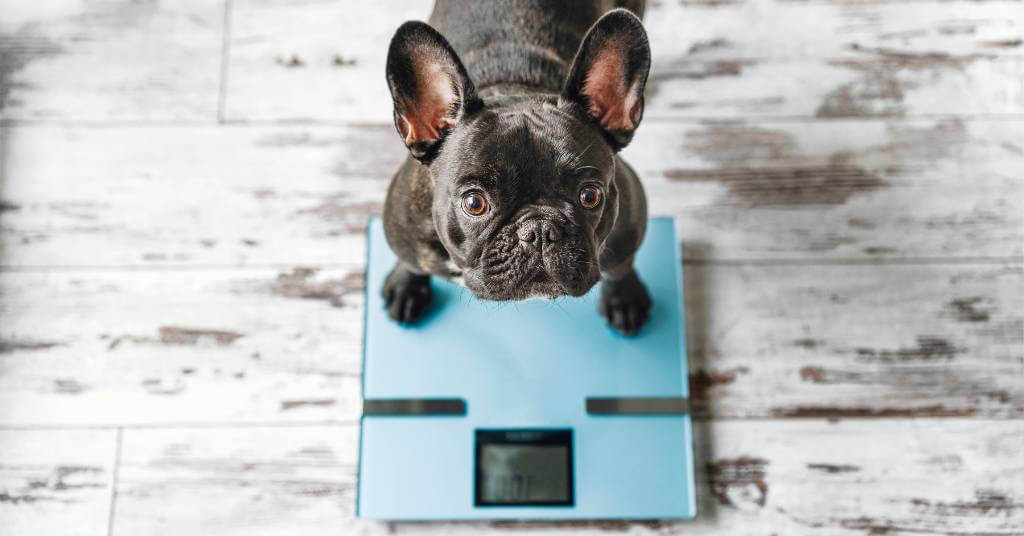
Keeping an eye on your senior dog’s weight is super important. Extra pounds can make joint pain worse, strain the heart, and cause other health issues.
Weigh them regularly and adjust their portion sizes if you notice any changes. Maintaining a healthy weight is one of the most practical senior dog nutrition tips you can follow to keep them feeling their best.
11 Add probiotics to support digestion
A healthy gut is key to good nutrition, and probiotics can help with that. They promote healthy gut bacteria, improve digestion, and help your senior dog absorb nutrients better.
You can find senior dog foods with added probiotics or add a little plain yogurt, cottage cheese, or kefir to their meals. You can also give them homemade treats with yogurt, like dog-friendly ice cream, or just mix yogurt with some rolled oats and fruit.
12 Avoid unnecessary fillers
Fillers like corn, soy, and wheat are often used in lower-quality dog foods, but they don’t provide much nutritional value. They just add empty calories that your dog doesn’t need, especially as they age.
This doesn’t mean that you shouldn’t buy food that has them. It just means that they should be further down the ingredient list and not the main ingredient!
13 Choose softer textures if needed
Dental problems are pretty common in senior dogs, and chewing hard kibble can become a challenge. If you notice your dog struggling, it might be time to switch things up.
You can mix their kibble with wet food, add a little water to soften it, or even switch to softer food options altogether.
You can also make one meal with homecooked goods like lean meat and some cooked rice. They can eat that for lunch instead of their regular serving of dog food.
Also, when you give them vegetables for an antioxidant boost, make sure that you cook them before sharing and cut them into small pieces. You can also mash them with a fork! They will still have all the food nutrients but will be easier to chew and digest!
14 Talk to your vet regularly
Regular check-ups are essential for senior dogs. While you can monitor their weight, overall health, and specific dietary needs, you need to talk to your vet about the following:
If your dog has unique health conditions, your vet can recommend a custom diet, natural supplements, and other add-ons that can help them thrive!
What’s your favorite tip for feeding a senior dog? Share it in the comments below!
Don’t forget to pin this post so you’ll always have these tips handy!
Love, life, and fur forever!
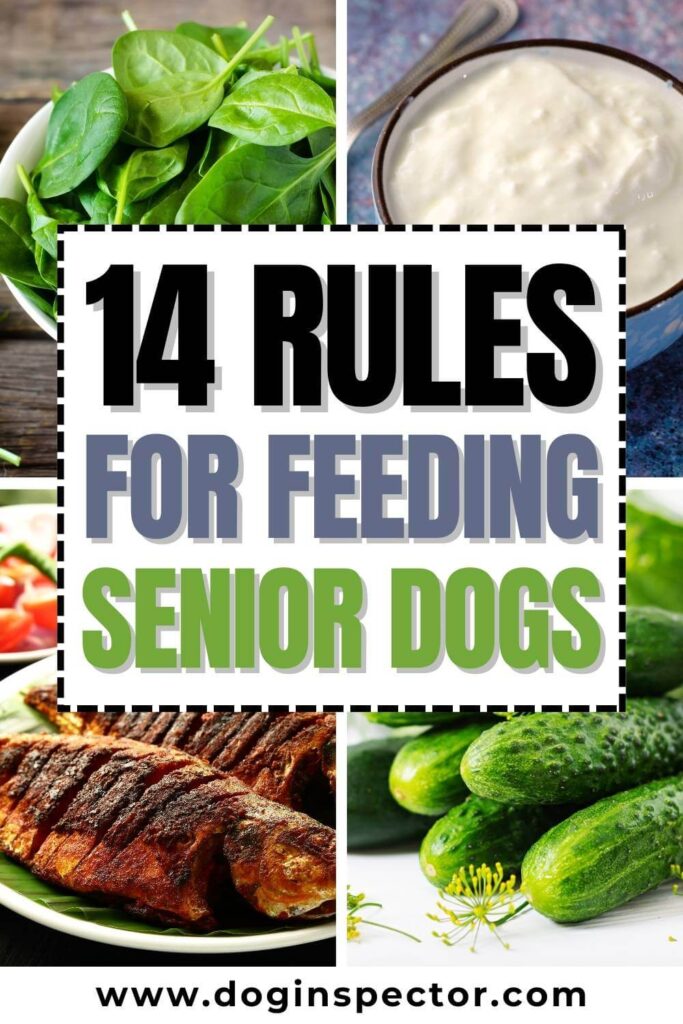
This post showed you 14 Essential Senior Dog Nutrition Tips.
You may also like: